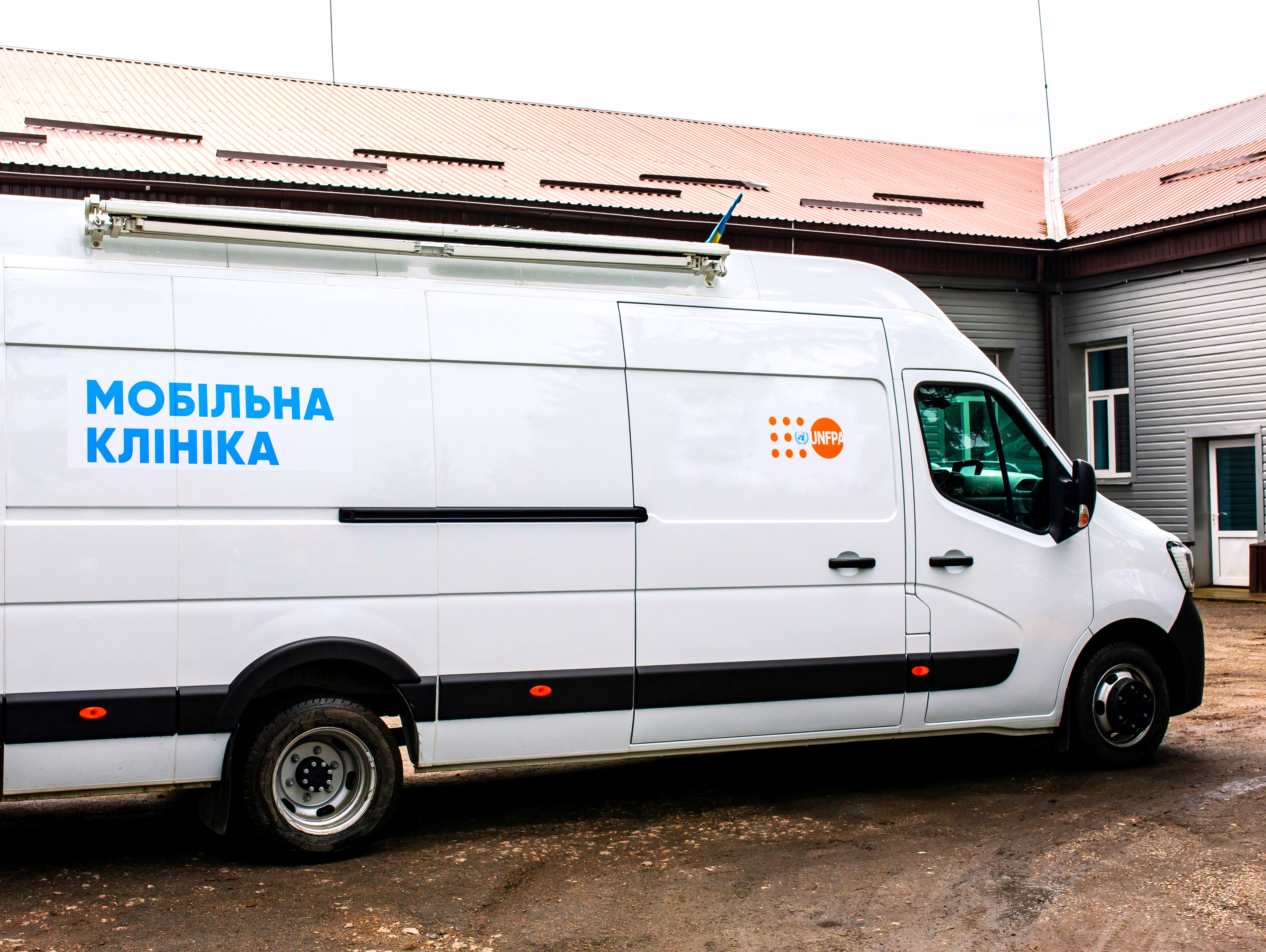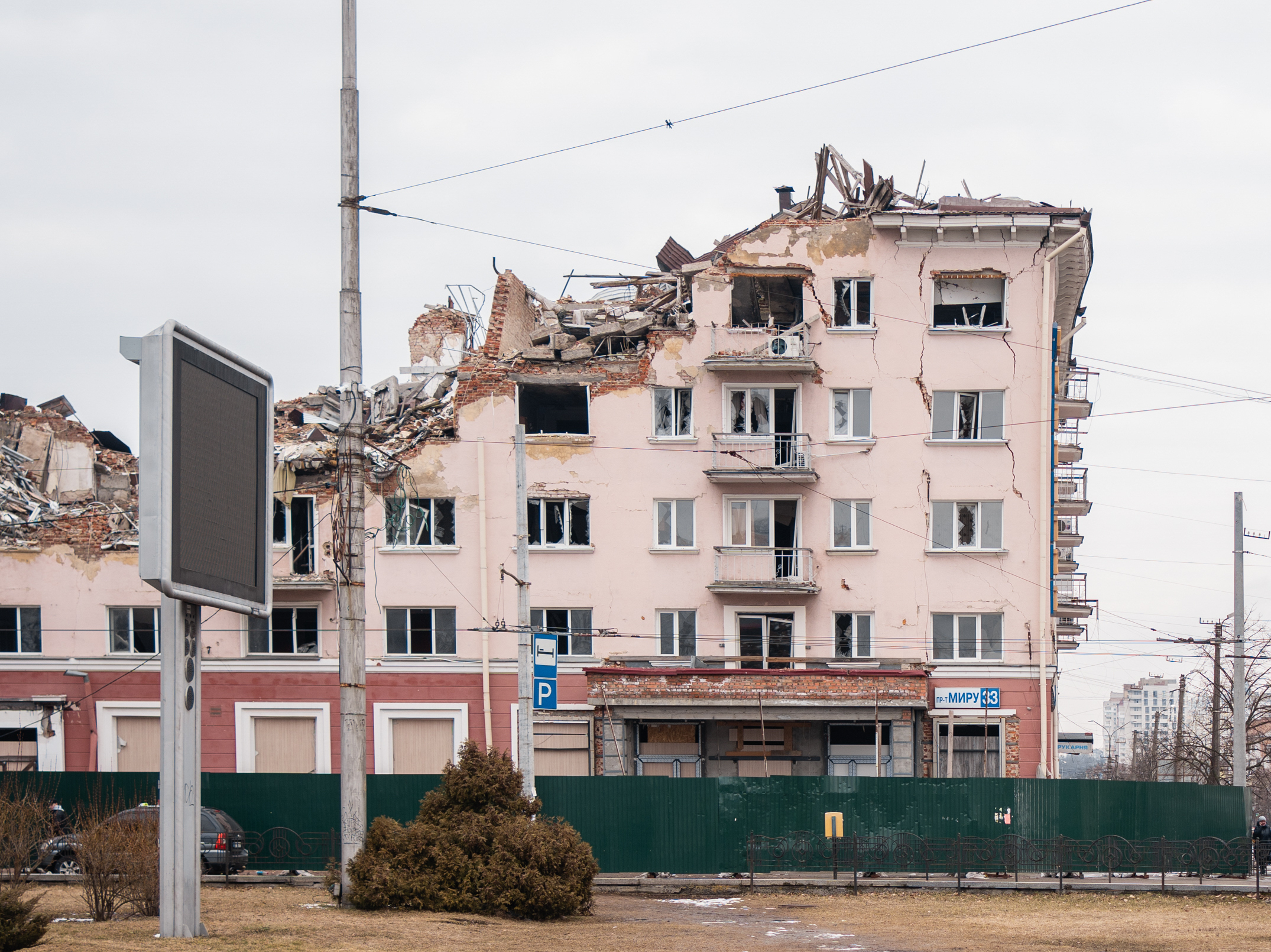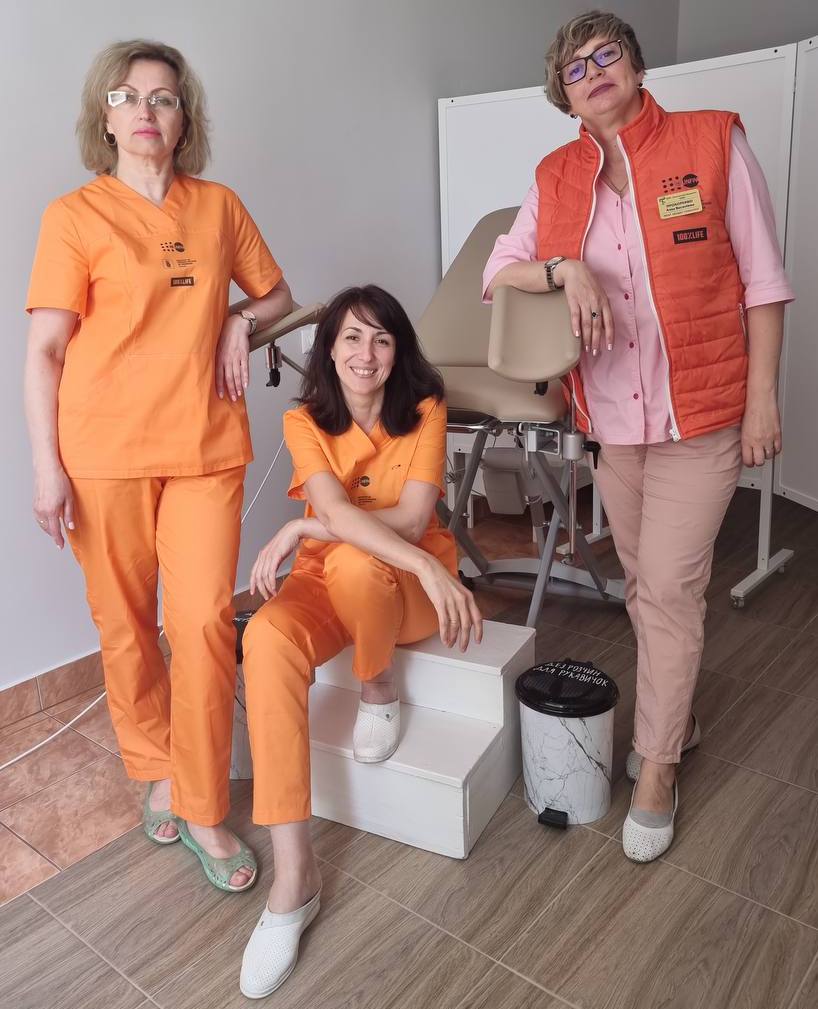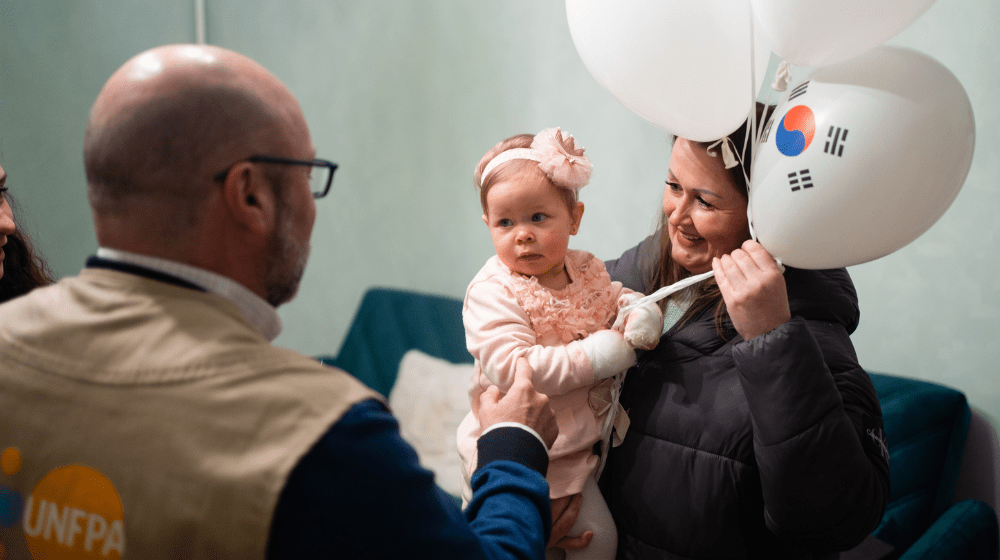The full-scale invasion of Ukraine significantly affected access to quality medical care. Residents of remote parts of Ukraine struggle to get to the nearest hospital and receive medical care. The United Nations Population Fund (UNFPA) and its partners have deployed 25 mobile medical units across 22 regions, covering long distances while facing challenging conditions to reach women and girls requiring assistance.

Oksana Skrypka, Lyudmyla Postneva, and Alla Prokhorenko work as midwives and gynecologists in the maternity hospital of the Chernihiv City Council. They have been traveling to the most seсluded areas of the region for three months now as part of a mobile team unit. During that period, they made more than 40 trips and provided medical assistance to 745 patients.
“The primary purpose of our mobile unit is to deliver humanitarian aid. We distribute essential kits and provide information to residents living in remote areas of the Chernihiv region. These areas often face limited access to medical services. While the Chernihiv region was under occupation for a short time, the roads were damaged and remain in poor condition, hindering people from reaching the regional hospital or consulting a doctor. Our role involves coordinating and supplying information about available specialists and services. This essential assistance empowers people to navigate their way and seek appropriate help,” says Oksana.
Thanks to the work of mobile units, people can receive free of charge high-quality medical care.
“These units are so important. Many women turn to us not only as gynecologists but also as family doctors. We see problems beyond gynecological ones. We diagnosed a wide range of common diseases such as diabetes and hypertension, and we have also detected an increasing number of cancers and chronic diseases. Recently, we have noticed more women, as young as 35, entering the early stages of menopause. We are also able to detect signs of violence, and direct survivors to relevant services if they wish to seek support. Most women we visit, have not been to a gynecologist for an extended period of time. The most common issues we face are linked to women’s age as 80 percent of our patients are above 60” adds Alla.

The full-scale invasion and Russia’s temporary military control of the region had a significant impact on the demographic indicators. Many people, including women of reproductive age, have left for safer regions of Ukraine. As a result, the birth rate decreased significantly.
“The challenge after the war will be the demographic changes. The population in the Chernihiv region was already decreasing before and people continue to leave for safer regions due to increased shelling. If I'm not mistaken, the Chernihiv region now has the smallest population. Today, residents of almost all northern regions are forced to flee,” notes Lyudmyla.
Working during the war is difficult. Despite the danger, Oksana, Lyudmyla, and Alla continue to perform their medical duties.
“The shelling was ongoing in the background, but we kept working because that is what we came for,” Oksana recalls. We worked even under the occupation. Unfortunately, people died in the proximity of the maternity hospital, and the hospital itself was damaged.”
Mobile gynecological units were created to facilitate access to medical care for residents of remote corners of Ukraine: local residents, internally displaced people (IDP), people with disabilities, as well as survivors of gender-based violence, including sexual violence and intimate partner violence. There are internally displaced persons in the Chernihiv region, in particular, from the Donetsk and Luhansk regions.
“We also provide medical services to people that were forcibly displaced. Many IDPs live in villages. Their last consultation with a gynecologist, for example, was four years ago, and it was in their home region. And now that they are here, they are waiting for us to come,” says Alla.
The equipment used by mobile medical units allows specialists to provide patients with quality services, screen women's health, and prevent various pathologies.
"It is crucial to note that the diagnosis and prevention of such pathologies have yet to be established in Ukraine. Specifically, human papillomavirus infection (HPV) testing, a critical screening stage for cervical cancer detection, cytology, and the final stage of colposcopy are not yet available, despite being common practices around the world. Thanks to the mobile gynecological teams' project, we now have a colposcope that enables us to conduct proper medical examinations and screenings. With this device, we can examine a woman and determine if there is an oncological pathology of the cervix," adds Alla.
There are some important needs that require attention.
“There are general problems, but the needs of every woman, family, or region are different. Coordination between available services and campaigns is needed. After the age of 40, a woman is advised to get a mammogram once a year. Yet, in our city, only two places have the capacity to perform this test, so a lot of women do not get it done. While we can run a cytology test, we cannot check the mammary gland. In addition, in the Chernihiv region, we do not have free vaccinations for girls. There are mechanisms to implement it, but there are no resources. The situation is further complicated by the war and insufficient awareness of the population about preventive actions that must be taken for one's own health,” Oksana says.
UNFPA teams fulfill the roles of gynecologists and midwives, yet there are instances where patients require supplementary assistance.

“We received appropriate training to provide psychological support if needed. Particularly with people that have been forcibly displaced as they experience high levels of stress and trauma, - Alla shares. They want to talk to us, tell us about their family, where their children currently are. We understand, and we know that against the background of stress, other diseases can develop, and we need to identify them in time. Therefore, our approach goes beyond the pure gynecological aspect. ”
__
Mobile units operate within the framework of humanitarian response measures of UNFPA, the United Nations Population Fund, with the financial support of the European Union (ECHO), the Ministry of Foreign Affairs of France, and the Republic of Korea.


